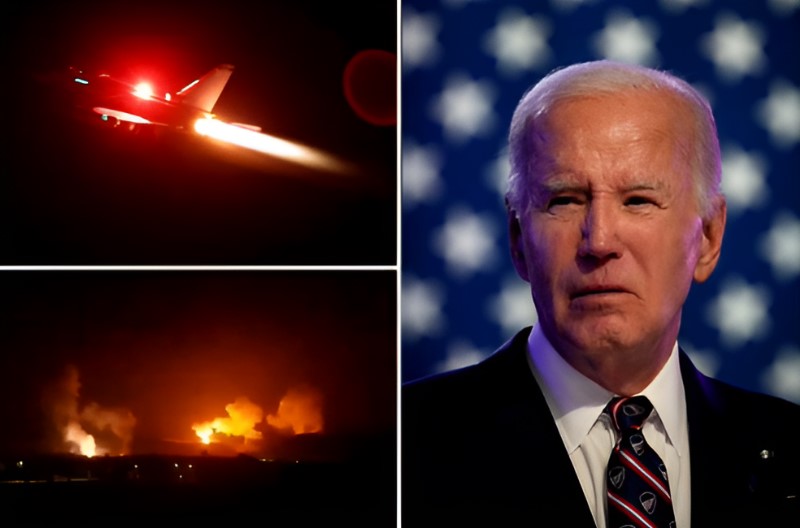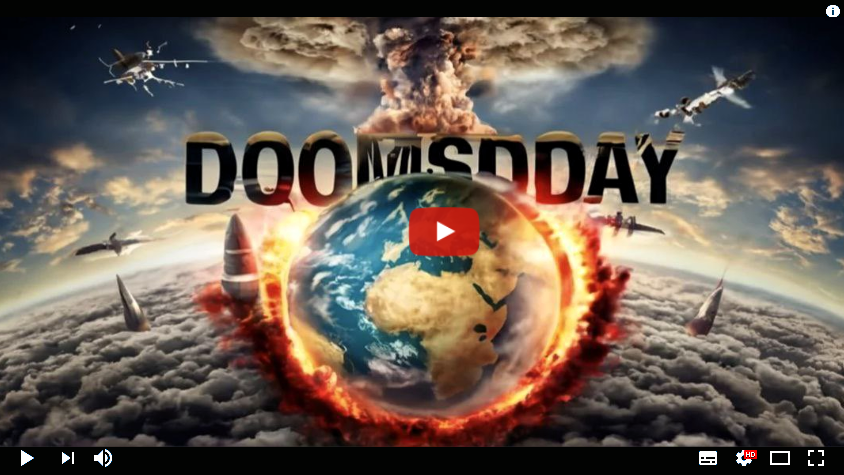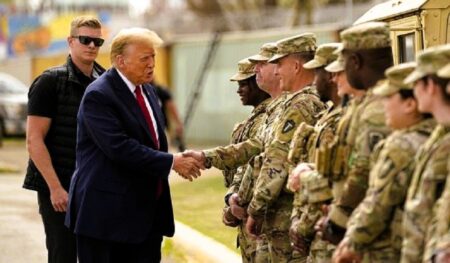Breaking: The Biden Administration and NATO Greenlight Deep Strikes into Russian Territory—Russia’s Retaliatory Promise: Destruction of Kiev and Lviv
Ready to uncover the truth? Sick of the lies? Join our Telegram Channel now. It’s time for the real story! My gratitude to all my readers!
World War III is on the brink! The Biden administration and NATO just authorized Ukraine to launch devastating missile strikes deep into Russia. Putin vows total destruction, while China, Iran, and North Korea prepare to unleash chaos. The global battlefield is set—brace for impact!
The Biden administration and NATO have authorized Ukraine to launch missile strikes deep within Russian territory using U.S. and NATO-supplied ballistic and cruise missiles. Russian President Vladimir Putin, enraged by this decision, has declared that such actions could trigger World War III. As tensions reach a boiling point, the world is bracing for a global showdown that could erupt at any moment. Kiev is preparing to strike, and once that happens, the entire international order could be thrown into chaos.
The Implications of NATO and U.S. Involvement in Ukraine’s Missile Strikes
The decision to arm Ukraine with the capability to strike deep within Russian borders represents a seismic shift in the dynamics of the war. Until now, Western nations had cautiously supplied Ukraine with defensive aid, but this latest development suggests a more aggressive stance. The authorization of ballistic and cruise missiles puts Russia on high alert, and the stakes couldn’t be higher.
NATO’s backing of Ukraine to conduct such operations not only escalates the conflict in Eastern Europe but also brings into question the future of international relations. This aggressive maneuver signifies that the West is no longer playing by the old rules of proxy war. A direct confrontation with Russia appears imminent, and the consequences could be catastrophic.
Search engines are buzzing with speculation about how this will affect global security, and people everywhere are searching for answers on what this means for their safety and the world’s geopolitical stability.
Russia’s Retaliatory Promise: Destruction of Kiev and Lviv
In response to this bold move by the U.S. and NATO, Putin has threatened to obliterate key Ukrainian cities like Kiev and Lviv the moment NATO’s missiles strike Russian soil. This threat must not be taken lightly. Russia has already proven its capacity for devastating military force, and with Ukraine’s new missile capabilities, the stakes have been dramatically raised.
For Putin, this isn’t just about regional conflict anymore—it’s about the survival of his regime and the preservation of Russian sovereignty. The prospect of major Ukrainian cities being reduced to rubble will send shockwaves around the globe. The annihilation of Kiev and Lviv would be more than symbolic; it would signify the collapse of Ukraine’s central governance and the start of a new, unrestrained phase of warfare. Civilians caught in the crossfire will bear the brunt of these escalations, while the political landscape of Europe is destined for radical change.

The Global Fallout: How China, Iran, and North Korea Could Exploit the Chaos
As if the situation in Ukraine wasn’t alarming enough, several nations appear poised to take advantage of the chaos that could ensue. Russia’s threat to retaliate is only the beginning. Simultaneously, China, Iran, and North Korea are positioning themselves to act, further inflaming tensions worldwide.
China’s Calculated Invasion of Taiwan. While the world’s eyes are fixated on the Russia-Ukraine conflict, China is quietly preparing to invade Taiwan. Beijing has long coveted Taiwan, and the Ukrainian war provides a perfect cover for a Chinese invasion. With the West preoccupied with a new Cold War-style conflict in Eastern Europe, China may see this as the opportune moment to strike.
A Chinese invasion of Taiwan would reshape the power dynamics in Asia, plunging the region into war and forcing the U.S. and its allies to choose between confronting China militarily or watching Taiwan fall. The geopolitical ramifications are immense, with the South China Sea becoming the next major battlefield in a global conflict.
Search engines are already reflecting a surge in queries related to China’s intentions with Taiwan, as the world anxiously anticipates whether the invasion will happen in the coming weeks or months.
Iran’s Long-Standing Rivalry with Israel. Meanwhile, in the Middle East, Iran has been biding its time, waiting for the perfect moment to strike at its long-time adversary, Israel. Using the cover of chaos in Ukraine and Russia, Iran could launch a massive military offensive against Israel, setting the stage for an all-out Middle Eastern conflict.
Iran has been steadily building its missile capabilities and strengthening its alliances with militant groups like Hezbollah and Hamas. An attack on Israel would not only destabilize the region but also provoke responses from U.S.-aligned nations, potentially pulling the West into yet another military conflict.
North Korea’s Belligerent Ambitions. Adding to the global tinderbox is North Korea, a regime notorious for its unpredictable behavior. Kim Jong-un’s regime has been eerily quiet in recent months, but analysts suggest that North Korea could be waiting for the right moment to launch its offensive. If Ukraine, Taiwan, and the Middle East all ignite simultaneously, North Korea may feel emboldened to strike, further straining U.S. and global military resources.
North Korea’s aggressive rhetoric and nuclear ambitions have always been a major concern, but in the current global climate, an attack from Pyongyang could be catastrophic. With world powers stretched thin, North Korea could cause unprecedented devastation in the Korean Peninsula, sparking another major conflict.
⇒ U.S. Nuclear Target Map – Do You Live In a Death Zone?
A New World War on the Horizon
It’s no exaggeration to say that the events now unfolding could spark a third world war. As NATO and the U.S. make their most aggressive move yet in the Ukraine war, the chain reaction it sets off may be impossible to control. The interconnectedness of these conflicts—Russia vs. Ukraine, China vs. Taiwan, Iran vs. Israel, and North Korea’s ambitions—could engulf the world in a conflict unlike any other in history.
The question on everyone’s mind: Are we prepared for what’s coming? The answer, tragically, may be no. Global readiness for such a cascade of military actions seems inadequate, and the political will to prevent war is dwindling. The world may be on the brink of an unprecedented era of destruction and uncertainty.
The Role of the U.S. in Global Conflicts: Leading or Provoking?
Critics of the Biden administration argue that this authorization to arm Ukraine with long-range missiles is not a defensive move but rather a provocation. By supporting deep strikes into Russian territory, the U.S. is opening itself up to severe retaliation from Russia and its allies. Some analysts are warning that this could be the point of no return for American foreign policy, leading to entanglements that will drain U.S. resources and destabilize its alliances.
The Biden administration’s role in these international events is under the microscope. Can the U.S. maintain its leadership position without triggering a global conflict? And how will this aggressive stance affect the domestic political landscape? These are critical questions that need to be addressed as the situation unfolds.
SEE ALSO: Red Boost — A Natural Path to Male Vitality: The Alpha Male Blueprint Revealed!
The Economic Fallout: Global Markets in Turmoil
As military tensions rise, global markets are already feeling the strain. Economists warn that a full-scale war involving Russia, China, Iran, and North Korea could send the global economy into a tailspin. Energy prices are likely to skyrocket, supply chains will face further disruptions, and inflation—already a global issue—could spiral out of control.
In the short term, investors are pulling out of riskier markets, while safe havens like gold are seeing increased demand. The potential destruction of critical infrastructure in conflict zones will exacerbate global shortages of everything from fuel to food, creating a humanitarian crisis on top of the military one.
Preparing for the Worst: Is There Any Way Out?
With global conflict looming, the question becomes: Is there any way to stop it? Diplomacy seems to be failing on all fronts, and military posturing is at an all-time high. However, some experts still hold out hope for de-escalation. International organizations like the United Nations may be called upon to broker peace deals, but their effectiveness is increasingly being questioned in such high-stakes situations.
For now, all the world can do is brace for impact. As military forces mobilize and alliances form, the clock is ticking. The world’s major powers are on a collision course, and unless a dramatic shift in diplomacy occurs, we may be witnessing the start of World War III.
Conclusion: A World on Edge
The Biden administration’s decision to authorize missile strikes deep into Russian territory marks a pivotal moment in global politics. With tensions escalating between major world powers, the possibility of widespread conflict looms large. Russia’s threats to destroy Kiev and Lviv, China’s preparations to invade Taiwan, Iran’s ambitions against Israel, and North Korea’s unpredictable nature all point to a world on the brink of disaster.
As search engines continue to reflect the growing concerns of people around the world, it’s clear that we are entering a new, dangerous phase of international relations. The world is more connected—and more vulnerable—than ever before, and the actions of a few could send us hurtling into global chaos.
Now more than ever, it’s critical to stay informed, prepared, and ready for what may come. The future is uncertain, and the only sure thing is that the world will never be the same after these events unfold.








![BREAKING: CANADA IS TERRA NULLIUS! King Charles Admits ‘Unceded Land’ – Commander Trump Holds Legal Ground to Annex the 51st State [VIDEO]](https://amg-news.com/wp-content/uploads/2025/05/King-Charles-Admits-‘Unceded-Land-450x280.png)


